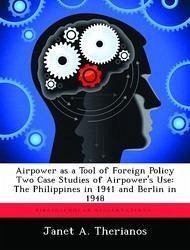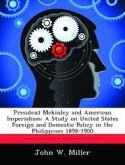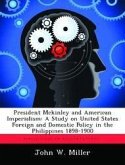The purpose of this work is to provide insight for the operational air planner who must determine the circumstances under which airpower can be an effective tool of foreign policy. With insight into this issue, both the air strategist and diplomat may be better equipped to evaluate the appropriateness of using airpower in international relations. To accomplish this purpose, this paper provides an analysis of two specific cases in which United States political leadership called upon airpower to further foreign policy goals without resorting to war. The first case study centers around the decision to place B-17s on the Philippine Islands in October of 1941. The second case study focuses on the use of airpower during the Berlin Blockade of 1948-1949. Both case studies use a framework for analysis that examines the interrelationships between political, material, and military influences on the ultimate operational air plan. Future students who may wish to pursue expanded studies of these or other cases may capitalize on this framework to pursue those studies.
Hinweis: Dieser Artikel kann nur an eine deutsche Lieferadresse ausgeliefert werden.
Hinweis: Dieser Artikel kann nur an eine deutsche Lieferadresse ausgeliefert werden.








